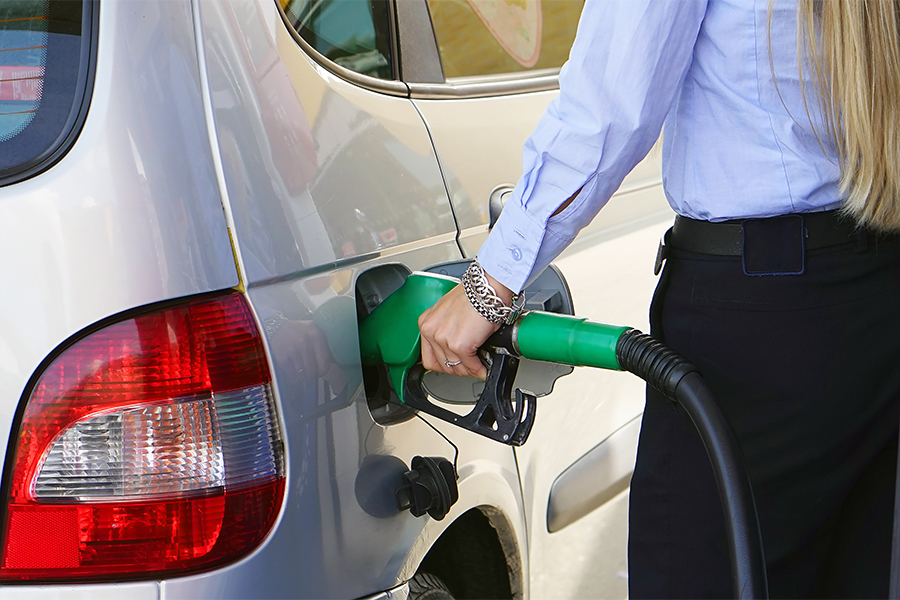Here are a few examples:
- On September 27, an Inland Empire resident drove away from her job at an area hospital when her pickup truck puttered to a stop. An investigation showed her tank had been drilled and emptied.
- A Valero Station in Fremont lost tens of thousands of gallons of diesel to thieves using a device to bypass pump security and transfer fuel into a specially configured pickup truck on July 10.
- On July 2, the Santa Clara County District Attorney’s Office charged two men with an alleged fuel theft scheme involving $90,000.00 in diesel fuel thefts.
- On March 1, East Bay law enforcement reported a “rash of destructive gas thefts by drilling gas tanks.”
- Most recently, on November 21, thieves in Otay Mesa near San Diego pumped 3,000 gallons of stolen fuel from a Circle K station. This was a loss of $16,000 for the station.
Gasoline prices in California are one area where the rules of supply and demand don’t apply to price. According to the Union of Concerned Scientists, since 2005 per capita use of gasoline has dropped by 2 billion gallons per year – a net drop of 15 percent over nearly twenty years. They attribute this decline to improved fuel economy and the increasing use of electric vehicles. For advocates of the idea that commercial and personal vehicle use is one of the primary contributors to climate change, this is welcome news. It certainly has improved local air quality in California’s most smog prone regions.
Yet, for California’s tax collectors. this is very bad news indeed as projected 2024/2025 fuel tax revenues are just north of $7 billion and should, according to basic economic laws, drop along with consumption. The California Air Resources Board recently adopted an updated Low Carbon Fuel Standard, which is estimated to increase gas prices by 47 cents per gallon or more.
California already registers the most expensive fuel costs and highest taxes in America. According to AAA, as of November 24, the average price per gallon in California was $4.45 while the national average was just $3.05.
According to a report by Fox News, USC Professor Michael Miche estimates that the 2025 increase will cost California’s 31 million drivers up to $1000 dollars per year more to compensate for the increase. A University of Pennsylvania study estimates that the CARB tax burden will increase to .85 cents per gallon by 2030.
There’s a truism in law enforcement that when government makes complying with the law too difficult or too expensive non-compliance and even crime is inevitable. It is true in traffic fines as judges and county administrators know that if they raise fines and forfeitures too high revenues actually drop. Ever wonder why there is so much roadside dumping? Look at your county landfill dump fees and for that matter their limited hours.
Two groups of individuals who do follow the principles of supply and demand are thieves and scofflaws. In the case of retail thefts, California has seen the consequences as retailers have been driven out of business or been forced to raise prices to cover their losses as well as the increased security costs. These closures have a direct effect on local governments in California, who rely primarily on sales taxes for funding.
Prop 36, which was passed in November, was an expression of frustration with those thefts and perhaps an understanding that theft economically hurts us everyone, the working poor and middle class most of all.
Yet, thieves will risk the threat of detection, arrest, and prosecution if the benefits outweigh the risk. In the case of fuel theft, it may also be driven by necessity. When the price of fuel cuts into the ability of an individual or family to feed and house itself – cheating and theft are the obvious choices.
The irony doesn’t end there. Use less water and your water company will raise their rates to maintain their budget. Use less electricity and PG&E will increase rates to maintain their income. And the government taxes both.
The Union of Concerned Scientists, power and water companies, and the Governor all have their priorities. But for millions of Californians, the enemy in 2025 may not be the retail thieves after resoundingly voting to hold them accountable by passing Prop 36. It is the Governor and legislature in Sacramento who just stole $1000.00 from each of them.
Get ready for a two front crime wave.
Steve Smith is a senior fellow in urban studies at the Pacific Research Institute.

